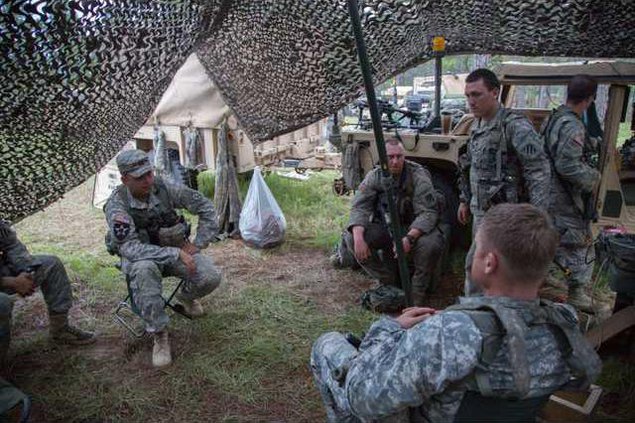FORT POLK, La. — I am reporting from a tent at the Joint Readiness Training Center with one of 2nd Infantry Brigade Combat Team’s infantry units.
This is like a homecoming of sorts for me. I worked here at JRTC as a contractor from late 2011 to early 2012.
This will be my first time seeing the day-to-day living and training of soldiers in rotation up close as a working journalist.
I met up with the unit Sunday afternoon, and it immediately rained as I got here. I was given MILES gear, a laser-tag-like vest that makes the wearer susceptible to being notionally “hit” by the enemy. So I am “in play” just like the soldiers and have to be aware of my security from the opposing forces.
My point of contact with the unit gave me a tour of the battalion’s camp after the rain let up, and I was able to see a company training infantry tactics with an adviser with Forces Command based on Fort Bragg, North Carolina.
The area is covered in poison ivy and poison sumac, so a lot of the soldiers are covered in it. The rain Sunday gave some soldiers a moment to take a quick field shower or rinse, as most of them hadn’t had a shower in days.
They are living in a field environment, ready to roll out at any time. They are living out of trucks, and many sleep on the ground.
It’s also very hot here. Just sitting in the shade can make you sweat.
Today, Monday, the soldiers are gathered training and planning for future missions. There is always something to do when not in direct contact with the enemy. Some soldiers sleep, eat or get clean.
Others monitor computer screens while talking with soldiers from their unit, bonding over shared experiences and people they’ve met in the military.
It seems that so far, the rotation has been challenging, but the soldiers feel that they’ve been adapting as situations come up.

